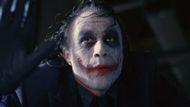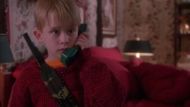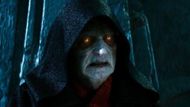Plot holes are usually thought of as faults, yet sometimes they actually make a movie more intriguing. Indeed, some of the most classic films have logic gaps or mysterious twists that, instead of spoiling the plot, enhance its fascination. Ranging from superhero blockbusters to fantasy romps, an astonishing number of popular movies have moments that leave viewers curious, arguing, and even admiring. These so-called "mistakes" might encourage fans to generate their own explanations, seek out deep meanings, or just appreciate the sense of unpredictability. After all, a flawless movie may not provide as much to discuss as one that has us scratching our heads positively.
Director/creators sometimes opt for spectacle, emotion, or rhythm over hyper-logicalness, and in doing so, produce movie moments that linger with us much longer. Whether it’s time travel confusion, impossible escape plans, or magical rules that change without warning, these details don’t always take away from a movie; they often make it more legendary. In this article, we’re diving into 10 plot holes that made their respective film more enjoyable, thought-provoking, or just plain fun. Because sometimes, a good movie is great because of its imperfections, not despite them.
Movie plot holes that make the film more interesting
1. The Dark Knight – Joker’s Elaborate Schemes

In The Dark Knight, the Joker's almost superhuman capacity for plotting bombings, kidnappings, and ferry booby traps strains credulity. How did he secretly wire two ferries with explosives? Or detonate a hospital without anybody noticing? While these are obvious plot holes, they help to heighten the Joker's aura. His lack of predictability becomes a psychological tool, making him less of a criminal and more of a symbol for anarchy. Christopher Nolan knowingly forgoes logistical explanations to emphasize themes of fear, anarchy, and moral decision. This decision has created countless fan theories, so the Joker's approach has become a rabbit hole of interpretation instead of merely an authorial lapse.
2. Inception – Gravity Inconsistencies Across Dream Levels

In Inception, dream levels interconnect; for instance, a van crashing in Level 1 sends tumbling gravity in Level 2. But this reasoning appears to collapse later, such as when the snowy fortress level doesn't mirror the hotel's gravity shifts. Why? Some argue Nolan opted for looks over strict logic. These illogical moments, instead of spoiling the movie, enrich the surrealism. They point out that dreams do not abide by the rules of the real world and can be shifting or contradictory. This spurs viewer theory and re-watching, prompting individuals to analyze each scene. Rather than clarity, Nolan prefers thematic resonance, embedding confusion as part of the charm of the story.
3. Harry Potter and the Prisoner of Azkaban – Limited Use of the Time-Turner

The Time-Turner in Prisoner of Azkaban is strong enough to undo time, enabling Hermione and Harry to rescue Buckbeak and Sirius. But why can't it be used in future crises like the Battle of Hogwarts, fans ask? Rowling later explained that all Time-Turners were destroyed, and excessive use might destabilize time itself. Even though it seems like a retroactive solution, it inserts a level of risk into magic, implying that even great tools have their boundaries. It also maintains stakes high and does not fall into the magical convenience trap. What at first appears to be a plot hole turns out to be a lesson in responsibility, risk, and ethical intervention.
4. Jurassic Park – The T. rex’s Mysterious Cliff Appearance

In Jurassic Park, the T. rex first steps out of its paddock onto level ground, attacking the tour vehicles. The same area is later a cliff when the car gets pushed over. How did the ground change? It's a classic continuity mistake, but it contributes to the disarray and uncertainty of the island. The confusion heightens the vulnerability of the characters and the park's inability to control. Spielberg sacrificed topographical fidelity to pacing and suspense. Audiences continue to speculate in terms of geography or point of view, but in the end, the illusion heightens tension and provides one of the film's most memorable sequences.
5. Avengers: Endgame – Captain America’s Time Travel Paradox

At the conclusion of Endgame, Steve Rogers sends back the Infinity Stones via time but decides to remain in the past and age with Peggy. Then he appears in the present as an old man. How? The movie doesn't say clearly. According to the directors, he generated a new timeline and returned via Pym Particles, whereas the writers provided another explanation. This paradox is baffling enthusiasts delight in arguing it. This plot hole deepens Cap's journey, providing emotional satisfaction while leaving narrative windows open for different timelines.
6. Home Alone – Kevin's Access to a Working Phone Line

In Home Alone, they say that the phone lines are out from a storm, but somehow Kevin is able to order a pizza. People have argued over this for decades until some reasonable real-world explanations came forward. Local calls can be made even when long-distance service isn't available, particularly in older systems. This mistake doesn't break the magic but provides an oddly realistic twist to the movie. Kevin's independence and ingenuity are still the priorities, and the minor inconsistency serves to enhance the offbeat charm of the movie. It's the sort of small gap fans ignore because the sentimental holiday mayhem more than compensates for technicalities.
7. The Matrix – Cypher’s Secret Meetings Within the Matrix

Cypher betrays the crew in The Matrix, making a secret agreement with Agent Smith within the Matrix. The issue? He shouldn't be able to get into the Matrix without someone on the outside to plug him in and keep an eye on him. This plot hole isn't necessarily explained, but it creates good possibilities: Could he have manipulated someone else or hacked the system? Most importantly, it fits the film's theme in the middle, examining the nature of reality. Cypher's actions exhibit human frailty and the attraction of comforting untruths over the biting truth. The uncertainty adds philosophical profundity and moral ambiguity to the narrative.
8. Frozen – Elsa’s Secrecy About Her Powers

In Frozen, Elsa keeps her abilities secret from Anna for years, even though the emotional price is obvious. The rational response would've been open communication, but that's what Elsa dreads: rejection, fear, and loss of control. It may be a plotting convenience, but it reflects actual repression and anxiety of emotions, particularly in individuals with special identities or talents. Elsa's solitude gives emotional depth and prepares for the central theme of the story regarding self-acceptance and sisterhood. Surprisingly, the sequel develops this further by showing how repression made her powers more unpredictable. What is initially a plot hole becomes an exercise of emotional realism and maturity.
9. Star Wars: The Rise of Skywalker – Palpatine’s Sudden Return

Palpatine's sudden return in The Rise of Skywalker made people scratch their heads. He died in Return of the Jedi, didn't he? The film provides only a vague "in some way Palpatine returned," giving rise to fan frustration. But from further lore in The Mandalorian, The Bad Batch, and the novelization comes Sith cloning, dark science, and cult rituals that facilitated his return. Although not developed in the movie, the mystery created a gigantic buzz and discourse, enhancing fan interaction. This movie plot gap propelled fans into the broader Star Wars universe, in which multimedia storytelling fills gaps and makes a jarring moment richer on the saga-wide thread.
10. Pirates of the Caribbean: The Curse of the Black Pearl – Delayed Use of the Blood Ritual

In The Curse of the Black Pearl, the immortal crew under a curse requires Turner's blood to remove their curse of immortality. Curiously, they take years to act despite Bootstrap Bill's son Will being available. The delay appears to be lazy plotting until you understand that it adds to Jack Sparrow's anarchic interference and creates suspense. The delay allows characters to grow and allows the audience to savor complex double-crosses and changing allegiances. And besides, the pirates could have been waiting for a particular moon phase or waiting for all the cursed coins to arrive. It is one of those times when narrative convenience actually serves to create fun and adventure instead of hampering it.
While movie plot holes are usually touted as flaws, they can sometimes add to a movie's charm and richness. These gaps in the narrative fuel imagination, generate fan theories, and sustain the buzz long after the credits have rolled. In others, the mystery itself enriches the mood or emotional impact of the film and makes the film more memorable. Instead of viewing these inconsistencies as flaws, it's good to appreciate how they make films all the more unique and magical. A perfect movie may be astounding, but one with precisely the right degree of flaw becomes a classic we return to, question, and adore all the more.
Love movies? Try our Box Office Game and Movie Grid Game to test your film knowledge and have some fun!
